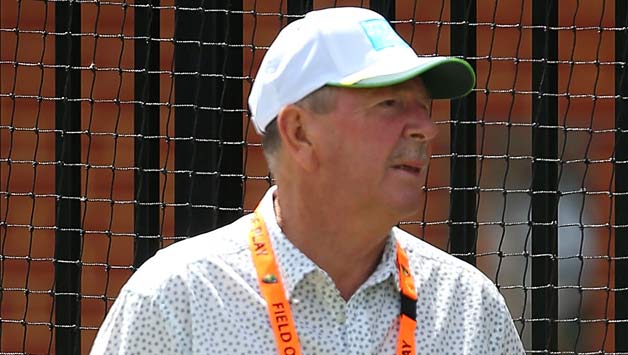
Cricket Country Staff
Editorial team of CricketCountry.
Written by Cricket Country Staff
Published: Sep 04, 2015, 09:11 AM (IST)
Edited: Sep 04, 2015, 09:11 AM (IST)


Australian chief selector Rod Marsh criticised the Decision Review System (DRS) and the use of ball-tracking technology in Test matches. While speaking at the MCC Spirit of Cricket Cowdrey Lecture, Marsh said he doesn’t trust the DRS for lbw decisions. “I have little faith in the ball-tracking systems. I have witnessed too many predictions on what path the ball will take that just don’t ring true to me. I may add they don’t ring true to anyone who has played a lot of cricket.” Marsh feels the on-field umpires should have the authority to give decisions, when it comes r to judge a LBW.
Marsh also felt if the ball track system is scrapped, the Board of Control for Cricket in India (BCCI) might accept DRS. “The added bonus to all this is that the Indian board may well agree to this and Test cricket would then be played under the same playing conditions worldwide for every Test match.”, said Marsh. The Australian chief selector also suggested a return to the back foot no-ball, which would make it safer for umpires to avoid a potential disaster from a straight drive. By changing no-ball decisions from the front foot to the back, umpires will have an extra two metres to protect themselves. “It’s only a matter of time before an umpire in an International or first class match is seriously hurt, if not killed,” said Marsh.
Talking about the size of modern cricket bats, he said , “I would put a restriction on the width of the edges because I will never condone a player being totally beaten yet the ball still travelling 70 or 80 metres for four or six off the fat edge,” he said. “That’s just wrong!” In the present circumstances, Marsh was sounded very hopeful about the future of Test cricket. “Most importantly get kids playing cricket. This is the key to growing the Test match game,” he was quoted saying by Sydney Morning Harald.
This website uses cookies so that we can provide you with the best user experience possible. Cookie information is stored in your browser and performs functions such as recognising you when you return to our website and helping our team to understand which sections of the website you find most interesting and useful.
Strictly Necessary Cookie should be enabled at all times so that we can save your preferences for cookie settings.
If you disable this cookie, we will not be able to save your preferences. This means that every time you visit this website you will need to enable or disable cookies again.
